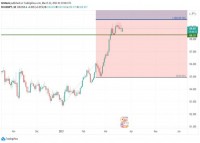|
New York-based Futures Clearing Merchant (FCM) MBF Clearing has been accused in a lawsuit of failing to properly segregate customer funds between September 2008 and March 2010. Account balances were said to vary between $30 million and $90 million, an unusually high level of fluctuation over a two year period if JP Morgan was the only depository. Factors influencing this account valuation could be related to clients adding and withdrawing funds as well as potential money management practices of the FCM. MFB is not registered with the National Futures Association (NFA), the industry regulatory body. During this time, the company deposited customer funds into a non-segregated money-market account held at JP Morgan, according to reports. Under CFTC segregation rule known 1.20, customer segregated accounts are to be held in a 4-D account. Such 4-D accounts have highly specialized rules of engagement between the FCM and the authorized depository, in this case apparently JP Morgan. As described in the related article "The Nuts and Bolts of Account Segregation and Investor Protections" below, such an account requires written acknowledgement of the special segregated nature of the account, mandating legal accountability. The account must be specifically identified as a segregated account and all involved are to acknowledge in writing they are aware of the unique nature of the account. It is unknown if JP Morgan faces any charges related to their apparent role as an authorized depository. MBF apparently opened accounts on the day of the Lehman Brothers collapse and is said to have poor paper work, according to industry sources.
Industry compliance consultant Neal Wolkoff has a different take on the issue: "The Complaint against MBF resulted from the Commission's review of segregation compliance at various fcms post-MF Global," he said. "In light of MFG, any allegation of a failure to segregate funds is going to be viewed on its face as likely criminal behavior." "In this case, solely reading the CFTC's complaint and press release it seems very likely that MBF had no intent to convert funds, deceive its clients, or violate the law. However, clearly it made mistakes in not precisely following the rules, and so if the facts are as alleged, it has violated the regulations. The account was opened September 17, 2008, just after Lehman collapsed. MBF already had a custodial relationship with JPM to hold segregated funds, and there was a Master Agreement intended to cover a number of accounts (hence a Schedule 1), but which only listed 1 account. Originally, the account statements were designated as segregated, and then later that designation disappeared, which is unclear why." In fact, JP Morgan's relationship with JP Morgan appears to be an interesting footnote that might be worth consideration. Calls to the CFTC asking for clarification regarding the depository agreement have gone un-returned. The CFTC complaint alleges: "MBF was under-segregated on approximately 322 business days between October 3, 2008 and March 26, 2010, not counting the USG Fund Account." Wolkoff notes "MBF held all required customer funds if the account was included. MBF clears professional traders; I doubt they have many, or any, retail client accounts. There's no inference that MBF tried to harm its clients in any way, although clearly it did not follow the procedural rules for segregated accounts." Noting the political football segregated funds has become, Wolkoff noted "In the past, I'm not sure that MBF would have been the subject of a press release for these violations, Not sure what it all means - but it was reported widely as awful misconduct and I don't see it that way in the context of what the alleged facts are." Goldman Sachs Fined $7 Million by CFTC Goldman Sachs (GS) has agreed to pay a $7 million fine for activities related to futures clearing business provided to broker dealers.�� Broker dealers (BDs) are separate from futures commission merchants (FCMs) in that broker dealers typically offer investment products related to the stock market and often tied to economic strength.�� Typically offer investments in managed futures, an asset class uncorrelated to the performance of the stock market.�� Direct access to a managed futures commodity trading advisor (CTA) investment enables the investor to have transparency into their daily account balances and all fees charged and are regulated by the CFTC and NFA.�� Non-transparent fund products, such as a managed futures mutual fund or a Commodity Pool Operator (CPO) are available through a Broker Dealer.�� Very few BDs offer direct managed futures accounts to their clients.�� Although initial press reports said MF Global was a BD, the firm had only 318 equity related accounts and over 38,000 futures accounts, making its FCM business the dominate factor in the business model. ��The $5.5 million dollar civil penalty and $1.5 million disgorgement settlement relate to "questionable conduct by the Broker-Dealer," according to the CFTC report.� For instance, GS was charged with not investigating contradictory statements between the BD's lawyer and the BD's actions while the BD allegedly trading as a CPO through GS and inaccurately represented performance of the account. In a statement, the CFTC said:
|
|
This article was published in Opalesque Futures Intelligence.
|





 RSS
RSS











